Abstract
Enalapril, the new converting enzyme inhibitor, was administered to eight patients with heart failure (NYHA Functional Class II to IV) during standardised and intensive haemodynamic, hormone, and electrolyte monitoring. The first dose (5 mg) of enalapril induced a fall in plasma angiotensin II and noradrenaline levels, and prolonged decrements in systemic vascular resistance, arterial pressure, heart rate, and right heart pressures. Maximum haemodynamic effects were evident four to eight hours after the first dose, with return to baseline by 24 hours. Plasma angiotensin II levels, however, were still suppressed at 24 hours. The magnitude of haemodynamic response was related closely to baseline (pre-enalapril) activity of the renin-angiotensin system and the sympathetic system. Enalapril treatment over three days induced a positive cumulative balance of sodium and potassium, and a small increase in plasma potassium. Urine aldosterone excretion decreased in a stepwise fashion. Continued enalapril administration for four to eight weeks resulted in improved clinical status (NYHA Functional Class) and exercise tolerance in patients who initially were most severely incapacitated, but little change was observed in healthier subjects. We conclude that in heart failure, enalapril is a long acting converting enzyme inhibitor with clear cut beneficial haemodynamic effects in the short term. Long term controlled studies of enalapril in heart failure are warranted.
Full text
PDF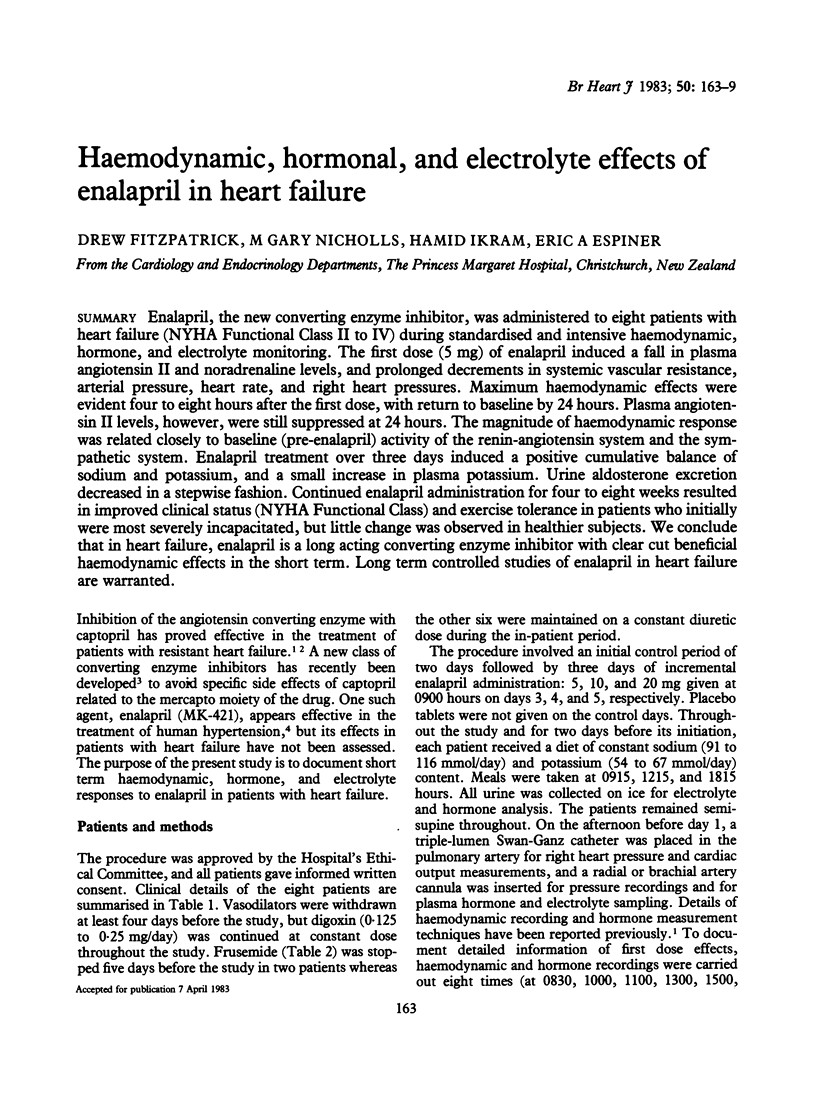
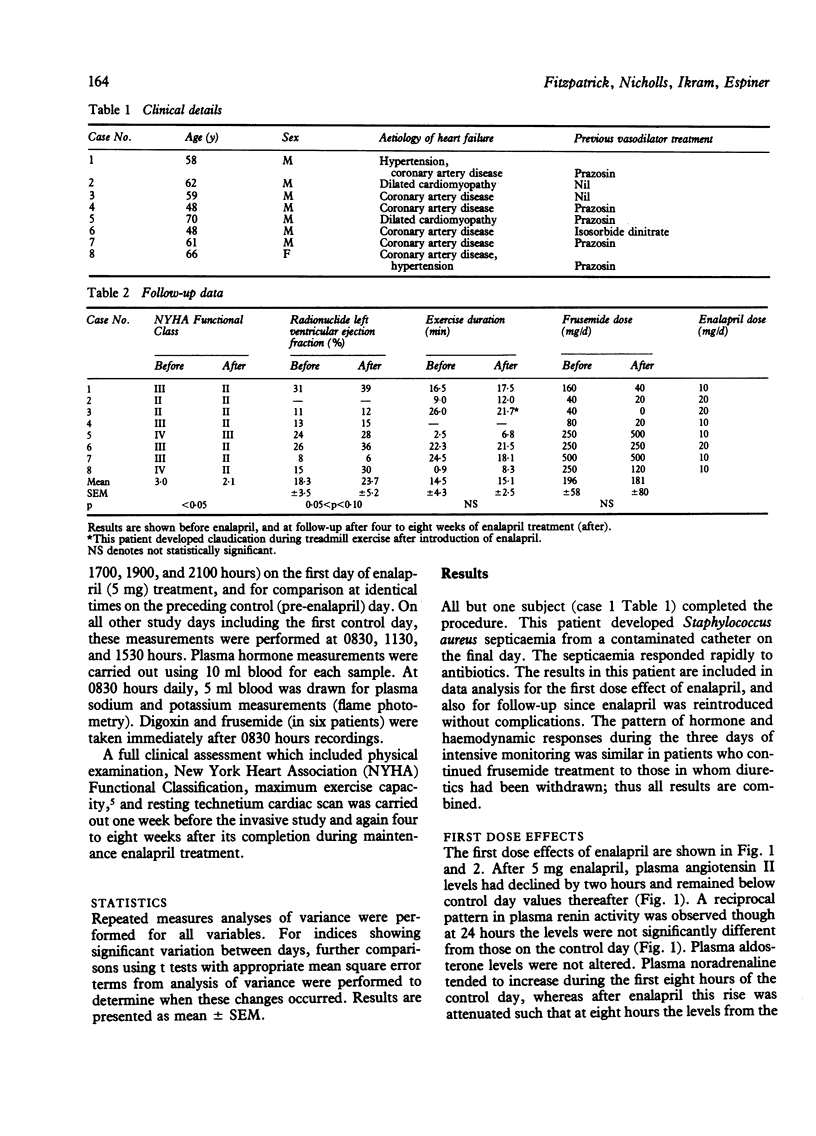
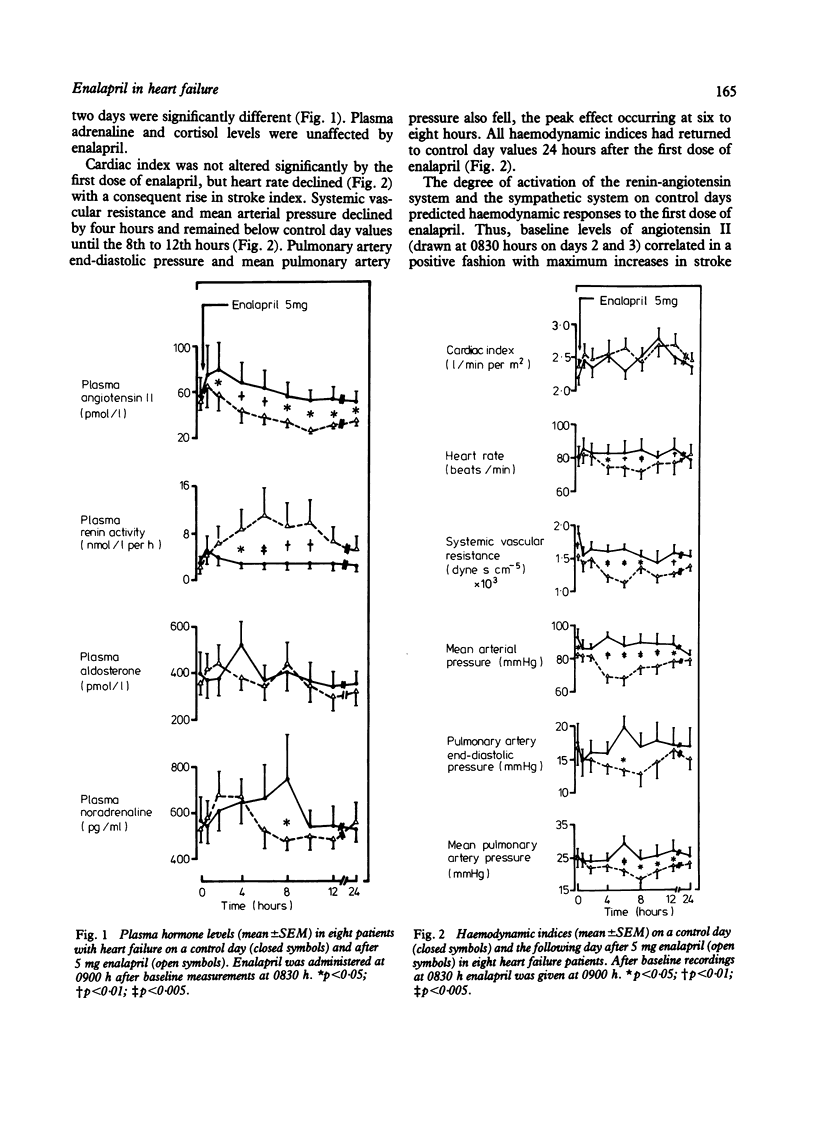
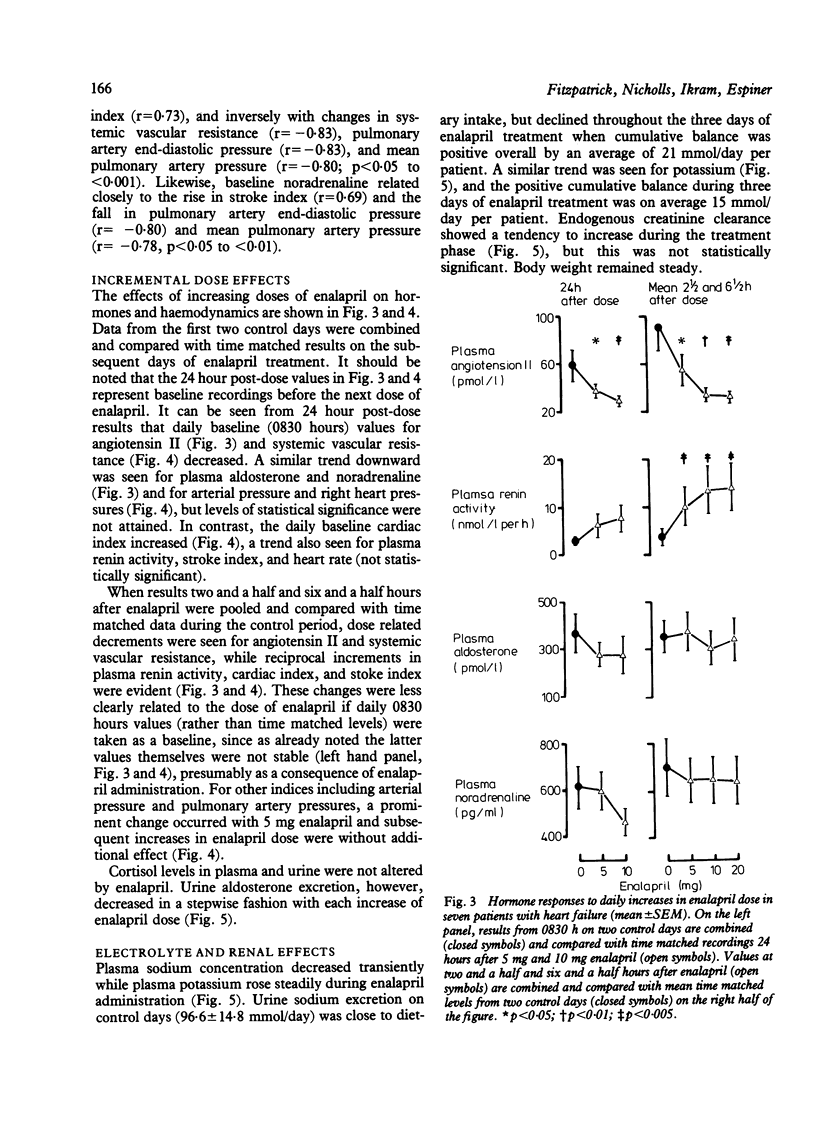
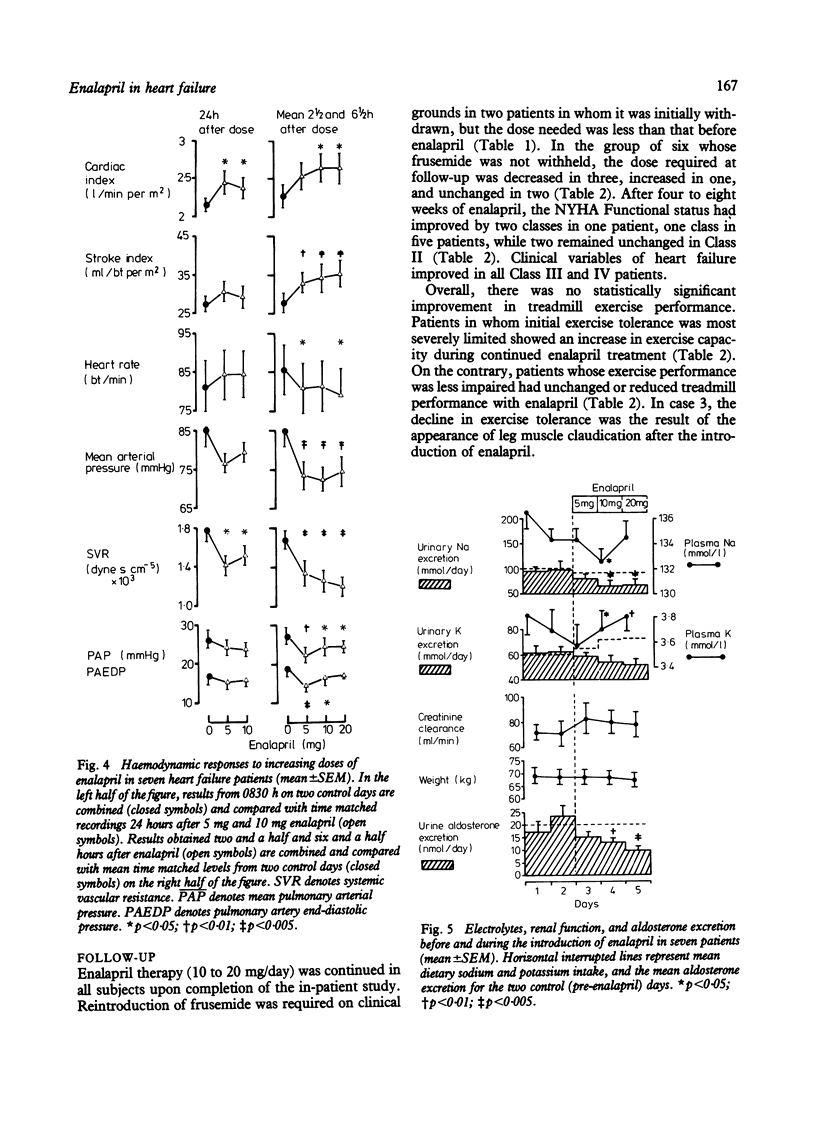
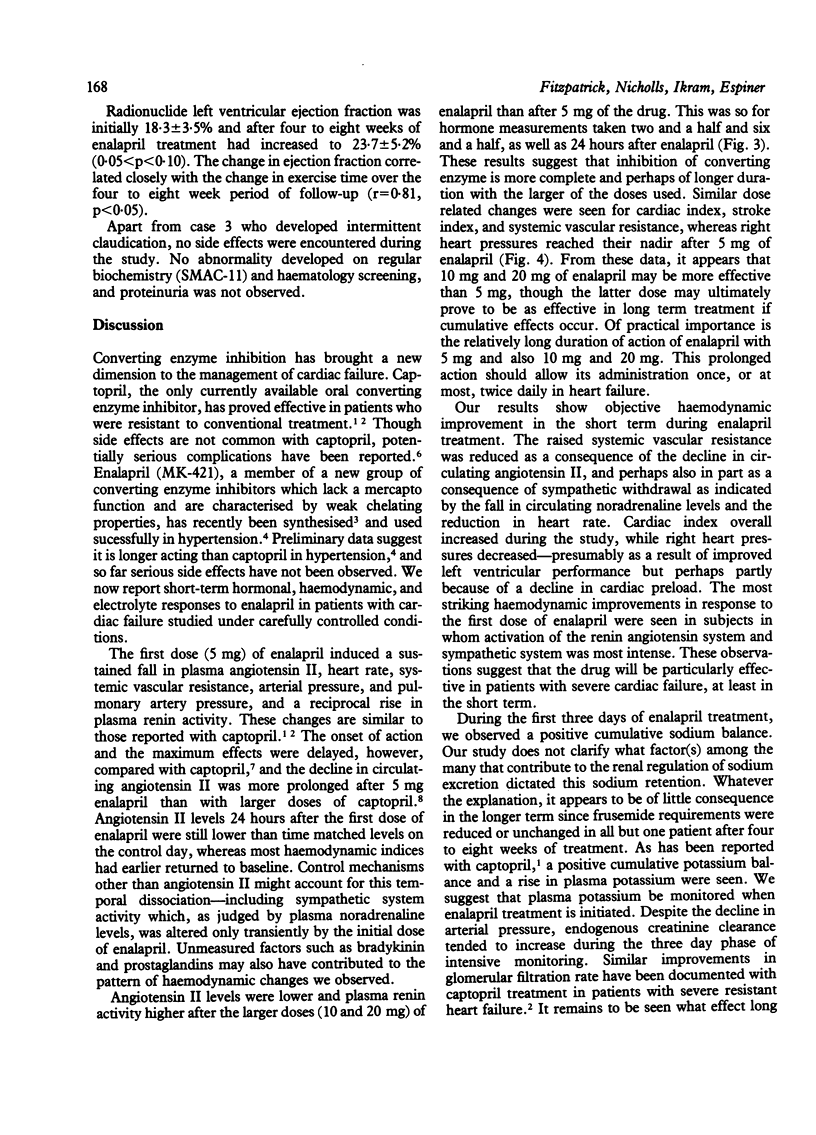
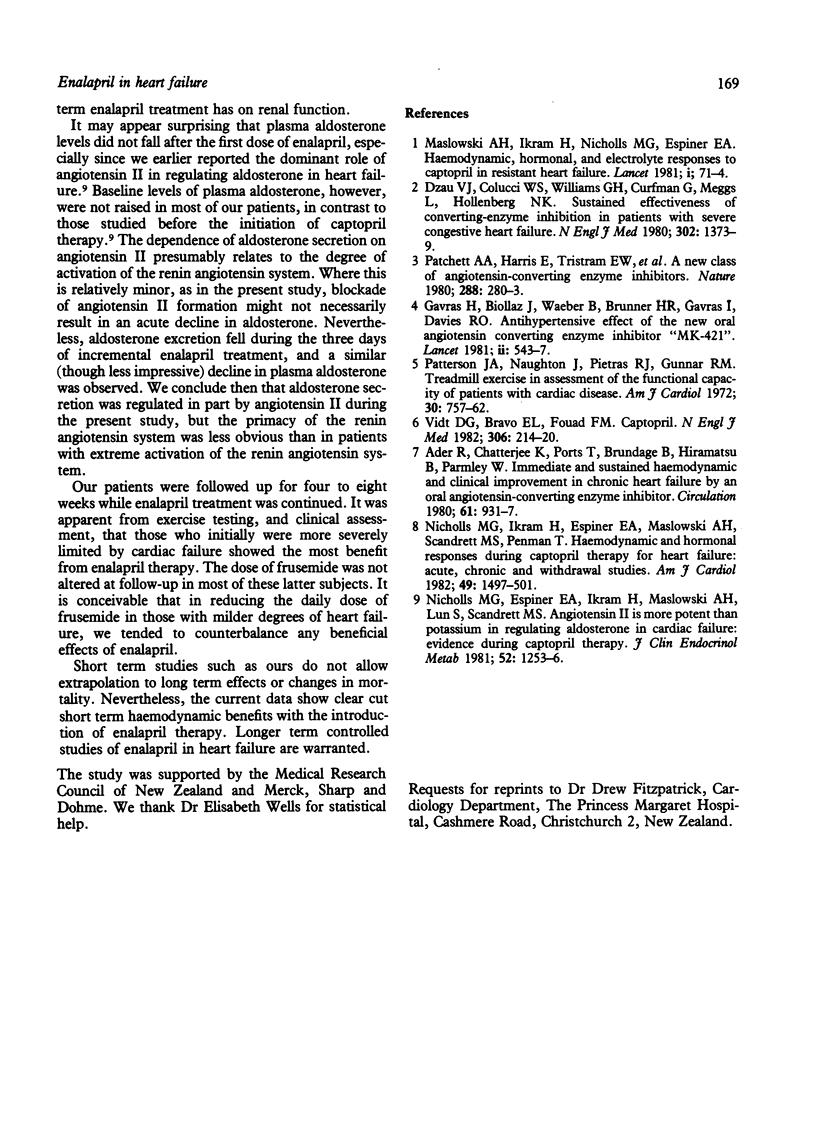
Selected References
These references are in PubMed. This may not be the complete list of references from this article.
- Ader R., Chatterjee K., Ports T., Brundage B., Hiramatsu B., Parmley W. Immediate and sustained hemodynamic and clinical improvement in chronic heart failure by an oral angiotensin-converting enzyme inhibitor. Circulation. 1980 May;61(5):931–937. doi: 10.1161/01.cir.61.5.931. [DOI] [PubMed] [Google Scholar]
- Dzau V. J., Colucci W. S., Williams G. H., Curfman G., Meggs L., Hollenberg N. K. Sustained effectiveness of converting-enzyme inhibition in patients with severe congestive heart failure. N Engl J Med. 1980 Jun 19;302(25):1373–1379. doi: 10.1056/NEJM198006193022501. [DOI] [PubMed] [Google Scholar]
- Gavras H., Biollaz J., Waeber B., Brunner H. R., Gavras I., Davies R. O. Antihypertensive effect of the new oral angiotensin converting enzyme inhibitor "MK-421". Lancet. 1981 Sep 12;2(8246):543–547. doi: 10.1016/s0140-6736(81)90937-5. [DOI] [PubMed] [Google Scholar]
- Maslowski A. H., Ikram H., Nicholls M. G., Espiner E. A. Haemodynamic, hormonal, and electrolyte responses to captopril in resistant heart failure. Lancet. 1981 Jan 10;1(8211):71–74. doi: 10.1016/s0140-6736(81)90004-0. [DOI] [PubMed] [Google Scholar]
- Nicholls M. G., Espiner E. A., Ikram H., Maslowski A. H., Lun S., Scandrett M. S. Angiotensin II is more potent than potassium in regulating aldosterone in cardiac failure: evidence during captopril therapy. J Clin Endocrinol Metab. 1981 Jun;52(6):1253–1256. doi: 10.1210/jcem-52-6-1253. [DOI] [PubMed] [Google Scholar]
- Nicholls M. G., Ikram H., Espiner E. A., Maslowski A. H., Scandrett M. S., Penman T. Hemodynamic and hormonal responses during captopril therapy for heart failure: acute, chronic and withdrawal studies. Am J Cardiol. 1982 Apr 21;49(6):1497–1501. doi: 10.1016/0002-9149(82)90367-8. [DOI] [PubMed] [Google Scholar]
- Patchett A. A., Harris E., Tristram E. W., Wyvratt M. J., Wu M. T., Taub D., Peterson E. R., Ikeler T. J., ten Broeke J., Payne L. G. A new class of angiotensin-converting enzyme inhibitors. Nature. 1980 Nov 20;288(5788):280–283. doi: 10.1038/288280a0. [DOI] [PubMed] [Google Scholar]
- Patterson J. A., Naughton J., Pietras R. J., Gunnar R. M. Treadmill exercise in assessment of the functional capacity of patients with cardiac disease. Am J Cardiol. 1972 Nov;30(7):757–762. doi: 10.1016/0002-9149(72)90151-8. [DOI] [PubMed] [Google Scholar]
- Vidt D. G., Bravo E. L., Fouad F. M. Medical intelligence drug therapy: captopril. N Engl J Med. 1982 Jan 28;306(4):214–219. doi: 10.1056/NEJM198201283060405. [DOI] [PubMed] [Google Scholar]



